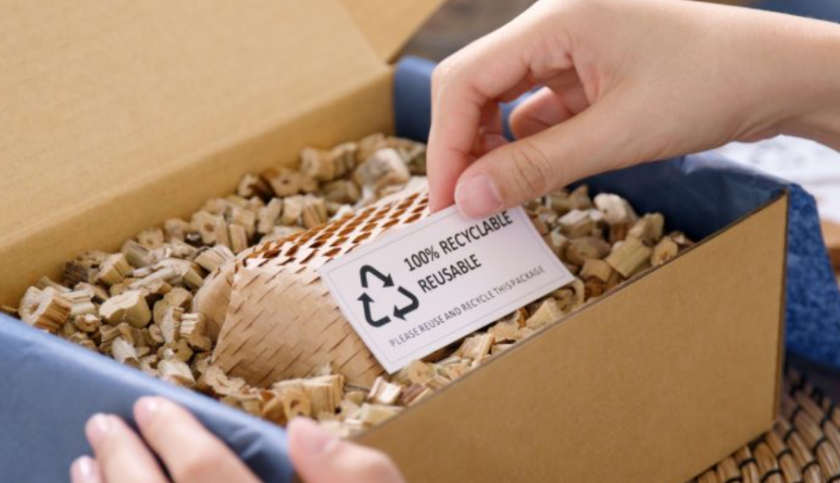 The environmental group Stand.earth is calling on Levi Strauss & Co. to overhaul its supply chain and implement renewable energy, asking the company to source at least 50 percent of its energy from renewable resources by 2035.
The environmental group Stand.earth is calling on Levi Strauss & Co. to overhaul its supply chain and implement renewable energy, asking the company to source at least 50 percent of its energy from renewable resources by 2035.
Last week, activists showed up at the company’s flagship San Francisco store, taking off their jeans as part of the “Too Dirty to Wear” campaign, which brings attention to what they call Levi’s “climate pollution impacts.” They also hung a sign over the company name that said “Levi Strauss & CO2.”
“Climate change touches every part of our lives, including the clothing we wear,” Karen Mahon, campaign director at Stand.earth, told Just-Style. “We all need to clean up our act, and we are calling on Levi’s to lead the way by getting the factories that make Levi’s to transition away from coal and other fossil fuels and start using renewables.”
The activist group did concede that Levi’s has made some positive changes to its operations, it believes that its supply chain is still a major problem for environmental issues. Currently, Levi’s plans to reduce emissions by 25 percent in its office, retail and distribution facilities over the next two years, and will switch to 20 percent renewable energy by 2020.
“Coal is the top source of electricity in electricity in Levi’s factories in item win supplying countries,” the company said. “Levi’s products are made in 170 factories in China, where coal powers 70 percent of the electrical grid, and 44 factories in India, where coal powers 75 percent of the electrical grid.”
As far as manufacturing in China, switching away from coal may not be an impossible task. China’s government is looking to shift the country’s manufacturing from coal to gas, especially in coal-heavy provinces such as Shanxi.
“At Levi Strauss & Co., we have long been firmly committed to staving off climate change and have set—and are on track to exceed—aggressive goals for reducing our emissions and using renewable energy within our owned and operated facilities,” a Levi’s spokesperson said. “More broadly, we are partnering with groups such as the National Resources Defense Council to reduce factory emissions across the global supply chain in a way that can be scaled across the industry. And, because climate change is a broad issue requiring the action of leaders across industries and beyond borders, we’ve been vocal in our support for the Paris Climate agreement and in urging world leaders to take meaningful action to protect our environment.”
The “Too Dirty to Wear” campaign specifically calls for Levi’s to make leadership-level commitments to meet or exceed the Paris Climate Agreement with a 30-40 percent reduction in greenhouse gas emissions by 2025, transition the entire supply chain to renewable energy as stated above, and commit to carbon emission reduction of 66 percent for the entire supply chain by 2050.


